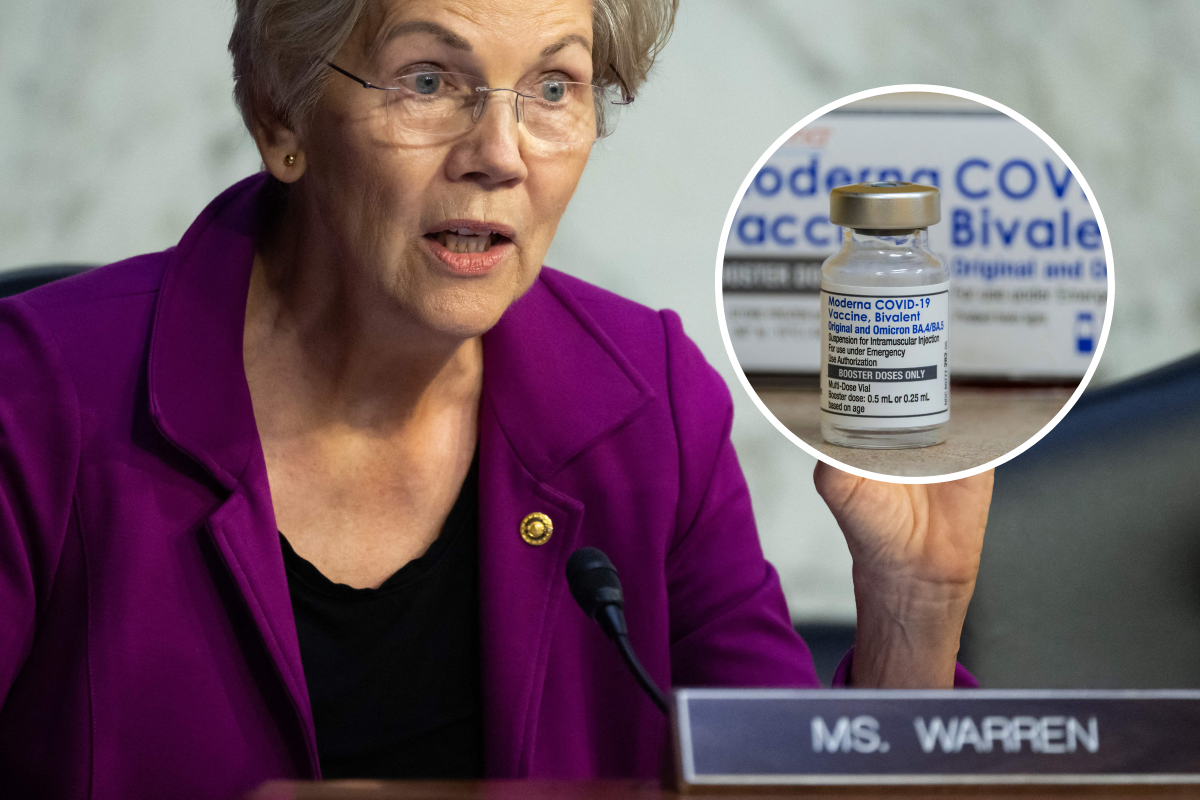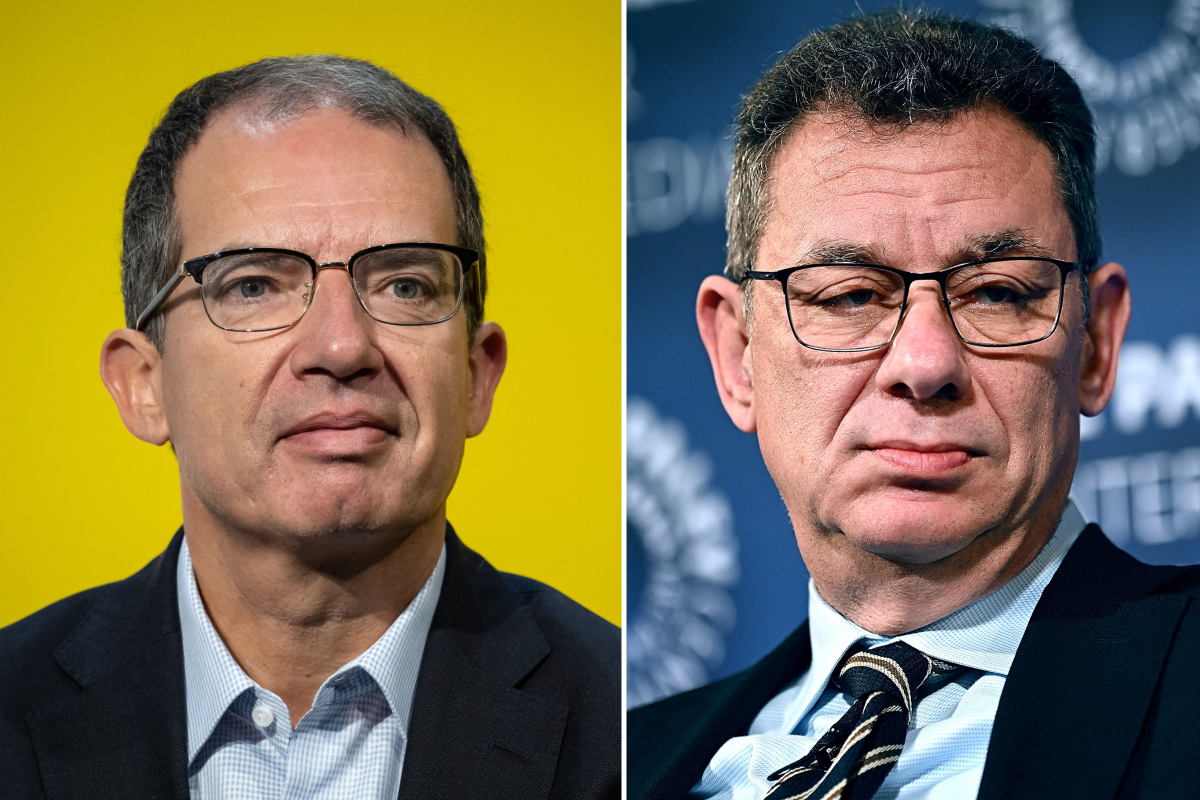U.S. and U.K. lawmakers have written to pharmaceutical companies producing the COVID-19 vaccine calling for them to refrain from drastically raising the price of the jab.
Stéphane Bancel, the CEO of Moderna, told the Wall Street Journal earlier this month that the company plans to quadruple the price of its COVID-19 vaccine to between $110 and $130 a dose.
Its current booster shot reportedly cost the U.S. government around $26 a dose, whereas the original vaccine was between $15 and $16.
The move comes after Pfizer announced a plan to quadruple the cost of its own COVID-19 vaccine to the same price range, citing weaker demand while it maintained cheaper contracts with developing nations.

Market analysts told Reuters at the time that the move would lead to competitors hiking their own prices.
The proposed price increases have caused concern in both the U.S. and the U.K. Elizabeth Warren and Peter Welch, both Democrat senators, wrote to Bancel on January 24 to question Moderna's "greed." The price hike may put the U.S. vaccination programme's progress "at risk."
"Your proposed price increase threatens to reduce access to a life-saving vaccine while boosting your company's profits," Warren and Welch wrote.
"Moderna's reported plans to charge as much as $130 per dose for its COVID-19 vaccines could prolong the public health crisis caused by COVID-19 and leave many uninsured Americans simply unable to afford the vaccine."
The senators cited reports that claimed Moderna earned $12 billion in 2021, and has projected that its 2023 sales of the vaccine will amount to at least $5 billion.
The latest company earnings statement said it expected to see revenue in 2022 of $18 to $19 billion, which put the company in a "strong financial position," Bancel said.
The senators noted that Moderna's price increase "closely follows" that of Pfizer's, which they argued "may have influenced Moderna's decision-making process regarding its vaccine prices."
Four U.K. Members of Parliament from across the political spectrum recently wrote to Pfizer's CEO, Albert Bourla, expressing concern over its impacts on the National Health Service, and asking him to confirm that the cost of the vaccine will not rise in the U.K.
"With the NHS already under significant pressure and the cost of medicines increasing year on year, we are extremely concerned about the multiple impacts of a possible price hike," wrote Caroline Lucas, a Green Party MP, along with Wendy Chamberlain, a Liberal Democrat, Dan Poulter, a Conservative, and Philippa Whitford, a Scottish National Party MP.
"The U.K. has already been paying the highest known prices for Pfizer's vaccines, with your company reportedly having already increased the price per dose from £18 to £22 [$22 to $27]," the letter added.
"With Pfizer's vaccine estimated to cost £4.98 [$6.14] to produce, even the original price represented a 340 percent markup."
Newsweek has contacted Moderna for comment.
A Pfizer spokesperson said: "In the United States, our COVID-19 vaccine is expected to be transitioning from government contracting to distribution and reimbursement through the traditional U.S. healthcare system in the coming months. This process is specific to the United States."
The company "remains committed to working with governments and other stakeholders to ensure equitable access to COVID-19 vaccines."
They added: "In the UK, we currently supply our COVID-19 vaccine via an agreement with the UK Government, with no onward cost to the British public. Pfizer invested $2 billion at risk in the development and manufacture of its COVID-19 vaccine, and received no government funding for the program."

The proposed price hikes may not be simply driven by profit, though, but also by waning demand and an increased cost of production fueled by supply chain issues and inflation.
"I suppose they will claim that all the raw materials and the supply chain to get them into whichever country that's using them—and it's true—will be costing them more," Martin Sawer, executive director of the Healthcare Distribution Association, a representative body of the U.K. medical supply chain, told Newsweek.
However, he noted that any price rises would require a "big negotiation" with the NHS, which sets contract prices with drug companies.
What agreement the NHS and the COVID-19 vaccine producers come to could have wide-reaching impacts on how much the drug costs elsewhere.
"It might just be they're the two sheriffs left in town, and they feel that they can now," Sawer said, adding: "The NHS is used as a sort of guide price for other countries as well, especially in Europe, so it's going to be a big issue."
Specific to the U.K. is the voluntary scheme for branded-medicines pricing and access, known as the VPAS levy—a tax on profits made from branded medicines. That tax has risen to 26.5 percent this year from 15 percent in 2022, to claw back profits made during the coronavirus pandemic.
"Many pharmaceutical companies are not happy with it," Sawer said. "It might be that they're trying to hedge against the cost of that. [...] But of course they've still got to get the product price agreed and proven as to why it's gone up with the NHS."
A spokesperson for the Association of the British Pharmaceutical Industry declined to comment on specific pricing decisions by its members, but advised caution over the costs cited by the U.K. MPs in their letter as "I don't believe these are recognised by Pfizer."
They described the claim that the NHS was under significant cost pressures due to medicine prices as "incorrect," as they are controlled by government pricing schemes including the VPAS which they said cap the growth of NHS medicine spending.
"Essentially, the NHS can procure all the branded medicine it requires and any overspending is returned," the spokesperson asserted. "Between 2019 and 2023, there will have been a 12 percent real terms decline in medicines spending at a time when the government has provided the NHS with an eight percent real-term increase in funding."
Newsweek has contacted the U.K. Department of Health for comment.
Update 01/31/23,11:00 a.m. ET: This article was updated to include comment from Pfizer and the Association of the British Pharmaceutical Industry.
Uncommon Knowledge
Newsweek is committed to challenging conventional wisdom and finding connections in the search for common ground.
Newsweek is committed to challenging conventional wisdom and finding connections in the search for common ground.
About the writer
Aleks Phillips is a Newsweek U.S. News Reporter based in London. His focus is on U.S. politics and the environment. ... Read more
To read how Newsweek uses AI as a newsroom tool, Click here.








